Articles
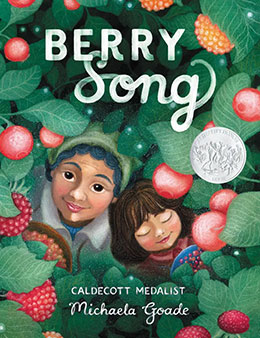
Artificial Intelligence: Food for Thought
Following up on Gail Nordstrom and Heidi Hammond’s Caldecott Lines of Connection article, “Food for Thought,” Gail decided to give artificial intelligence a challenge to write an article on the same topic. Here’s how it went down.
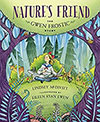
Picture Books Minus the Age Stereotypes and Ageism
Modern day children’s books riddled with negative stereotypes of age? Sadly yes, they are all too easy to find.

Vera’s Story Garden
Vera’s Story Garden Established as a Literary Landmark by United for Libraries May 4, 2019 by Mary Paige Lang-Clouse, DirectorEthelbert B. Crawford Public LibraryMonticello NY I met Vera B. Williams in the early 2000s while working at the public library in Narrowsburg, N.Y. It should come as no surprise to anyone that knew her that Vera didn’t waste
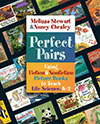
Perfect Pairs
Bookology is delighted to feature a sample lesson from Perfect Pairs: Using Fiction & Nonfiction Picture Books to Teach Life Science, K‑2 by children’s book author Melissa Stewart and master educator Nancy Chesley (Stenhouse Publishers). When this book (and its companion for grades 3 – 5) first came across our desk, we were blown away by its perception and
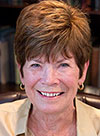
Teaching Writing to Reluctant Writers — and Who Isn’t One?
“What’s next?” kids — ask, as they whiz through life at warp speed. You’ve seen them constantly check their phones for texts, Snapchat, and Instagram. Kids at video game kiosks hunch over the controls, zapping animated figures and blowing up characters by the dozens. Should the adrenaline abate for even a second, they turn to the next game,
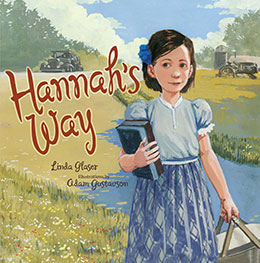
School-Themed Books That Build Empathy
During one of our visits to our local library in late summer, several of the books on display caught my eye. School was the common thread, and my family found some good conversation starters among the titles. I’ll highlight three that have merit as texts that help build empathy and/or broaden children’s views about school
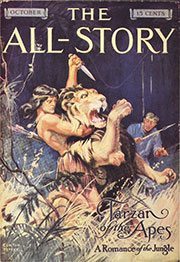
Changing Science Fiction Forever
by Vicki Palmquist In its October 1912 issue, All-Story Magazine published a short story by Edgar Rice Burroughs called “Tarzan of the Apes.” Do you remember the plot? John Clayton is born to parents who are marooned on the west coast of Africa. His parents, Lord and Lady Greystoke, die on his first birthday. John is
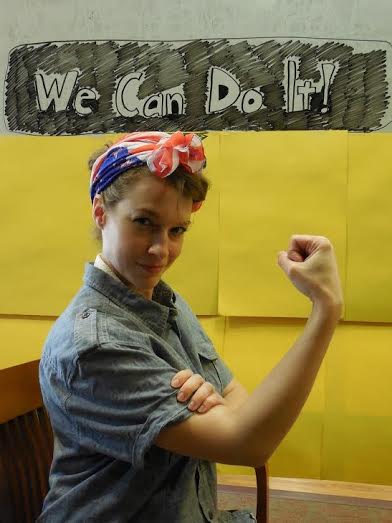
Picture Books and Dementia
by Jenny Barlow We could reach her through nursery rhymes. She regularly sat in the living room, wrapped in a blanket in her wheelchair. To people who don’t understand, she would seem withered, vacant, even loose in the joints, and maybe very shabby. But we stroked her palsied hands and gently called her name. On occasion,
I Would Like to Thank…
The annual meeting of the American Library Association begins this week. The winners of the various book awards are no doubt eyeing the festivities with some trepidation because they will be presenting speeches. This has been going on since the first Newbery Award was presented in 1922. Traditionally called “Acceptance Papers,” the speeches are the bull’s‑eye of events

The Curious Child: writing and books
by Vicki Palmquist After reading Catherine, Called Birdy, readers will wonder about Edward, Birdy’s brother, and the books he was scribing at the monastery. In what type of book did Birdy keep her journal? Who taught her to write? Did she write in the same fancy script that her brother did at the monastery? Birdy
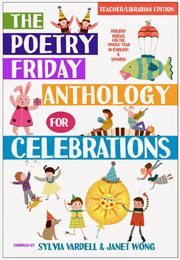
Two Birds from the Same Egg with Poetry PLUS!
(editor’s note: In honor of National Poetry Month, we asked Sylvia Vardell and Janet Wong, authors of the The Poetry Friday series for a quick example of integrating poetry into the classroom. ) by Sylvia Vardell and Janet Wong We are pressed for time, so we multitask. You might be eating breakfast while you’re reading Bookology, or doing laundry,
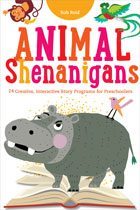
Teaching the Future
by Rob Reid I am fortunate to teach three sections of children’s literature each semester to future elementary teachers, future special education teachers, and future librarians. It’s truly a fun gig. I was asked by the Bookology folks to share those books and topics I teach to these budding professionals. I open each semester by introducing myself and reading
